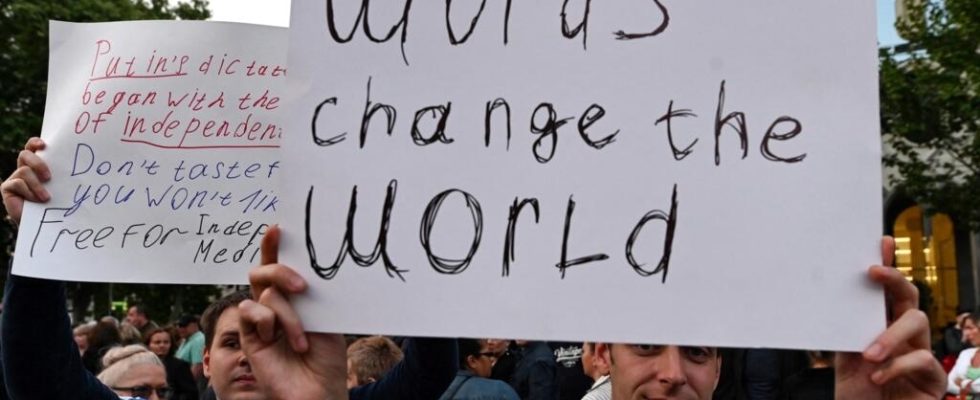The announcement is a surprise. Nika Gvaramia was sentenced in May 2022 to three and a half years in prison, after a trial deemed political. His imprisonment had been perceived as a serious attack on the freedom of the press by human rights NGOs.
In Georgia, President Salomé Zurabishvili pardoned a famous journalist and political opponent on Thursday, June 23. This decision was welcomed, in particular by the European Union, while the detention of the journalist was a stumbling block with Brussels. His imprisonment sparked criticism of press freedom in that country.
The journalist ran one of the main private television channels, critical of the government, and was sentenced in May 2022 to three and a half years in prison for “ having harmed the financial interests of a television channel he had previously directed “.
During a press conference, the president refused to give the reasons for this decision and said she did not want to comment ” which is my discretionary right “.
A political judgment
Nika Gvaramia claimed that the charges against her were politically motivated. The human rights organizations Amnesty International and Human Rights Watch had called for the release of this man, very critical of the government. The Committee to Protect Journalists (CPJ) has declared itself ” delighted that Nika Gvaramia has been pardoned “.
“ The future of Georgia is in the European Union. This is an essential step towards depolarization in Georgia “welcomed the President of the European Council, Charles Michel, after the announcement of the release of Nika Gvaramia. Except that if we go back a year, Brussels did not hold the same speech. The 27 then refused to grant candidate country status to Georgia. Among the reasons: the lack of freedom of the press. The conviction of Nika Gvaramia had been perceived as a political judgement.
Nika Gvaramia is not an isolated case. Human rights defenders regularly accuse the ruling coalition, the Georgian Dream, of using the law to muzzle the opposition. They claim that the managers and owners of almost all independent television stations are under investigation. An opinion shared by Brussels, which had included freedom of the press as one of the conditions for Tbilisi to one day obtain candidate status.
(With AFP)
Also to listenInternational guest – Georgia: the draft law on foreign agents “copied on the Russian law of 2012”
